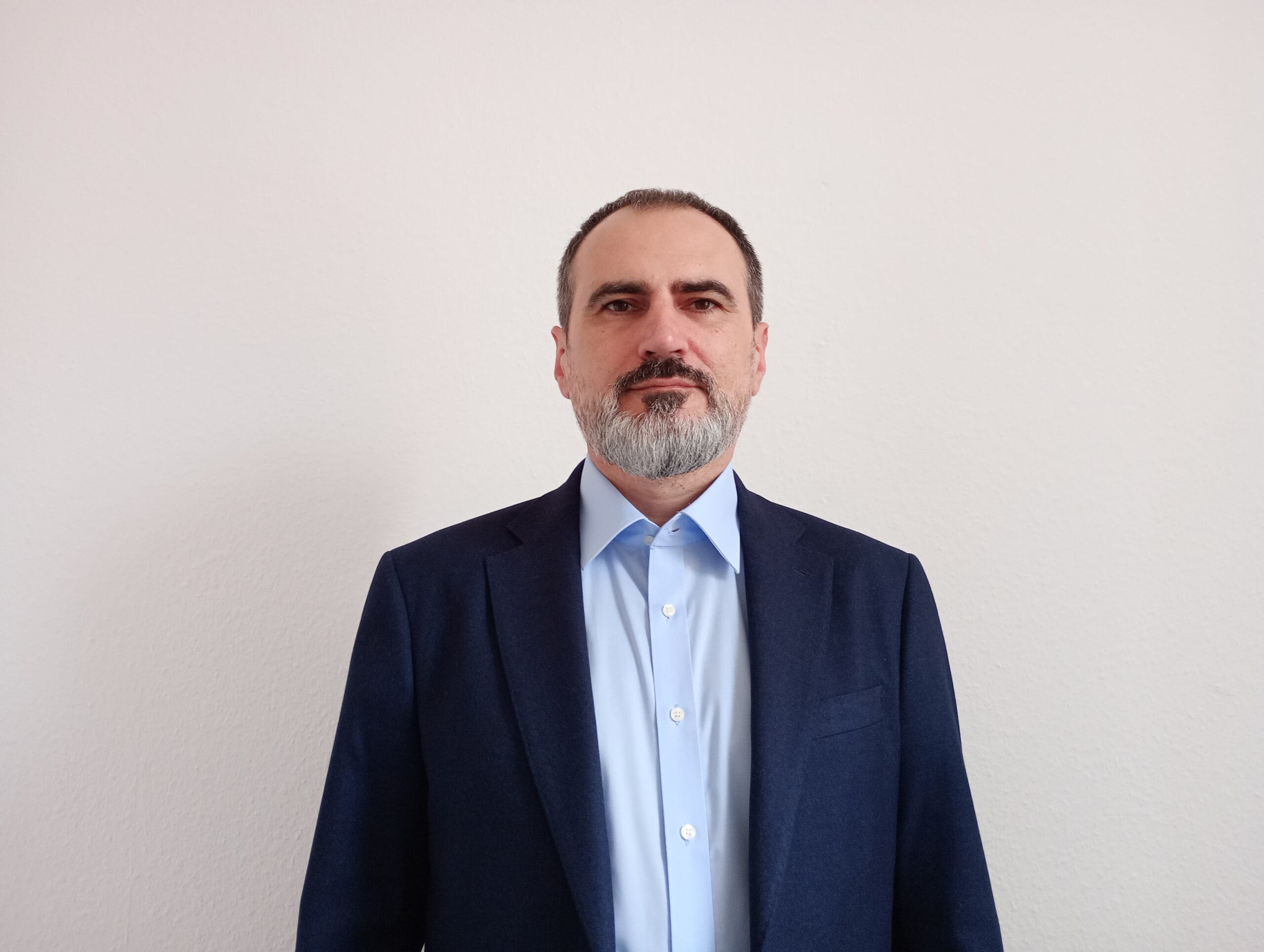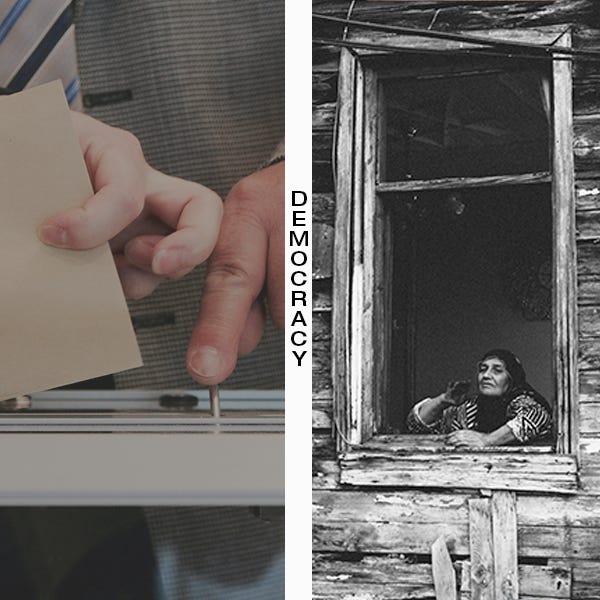“I am confident that Ukraine will turn things around and win this war. This will happen in the next few weeks. We don’t brag about our accomplishments, but rest assured that you will hear about them” – said Ukraine’s ambassador to Paris, Vadym Omelchenko, in a television interview on July 6, already after his country’s army had withdrawn from Lysychansk and Severodonetsk. Until recently, this optimistic vision was pretty much the official position of France and other NATO countries. Too much has happened for anyone to believe it any longer.
“We will do everything possible to help Ukraine defend and win. We will not back down until Russia is defeated” – argued newly reelected French President Emmanuel Macron during a visit to Kiev with the leaders of Germany and Italy. The purpose of the visit was to dispel the political impression that these three key EU countries are ‘Ukro-skeptical’ or even ‘pro-Russian.’ Macron was forced to humbly explain himself in relation to his earlier statements about “not humiliating Russia,” and all three promised to make Ukraine a candidate state for the EU, with the prospect of admission “in 15-20 years,” as French TV commentators explained to appease the public.
Macron visited Kiev in mid-June, between rounds of parliamentary elections that resulted in his party losing its parliamentary majority. However, this will not be the only factor influencing some of his para-monarchical power’s constraints. The June elections significantly increased the left’s presence in parliament and, above all, were a huge success for Marine Le Pen’s National Unity (RN), which brought as many as 89 deputies to the Bourbon Palace, a historic precedent that had previously been unthinkable.
“Only diplomacy will do”
This is the result of years of ‘grassroots work’ by Le Pen’s team and the de-demonization of her party, led by herself and much of the oligarchic media, interested in bringing about a repeat of the situation in the 2017 presidential election, i.e. a meeting between Macron and Le Pen in the second round: only this could ensure his victory. Five years ago, Macron promised to “completely marginalize” nationalists, which was supposed to be aided by a general improvement in living standards under his rule. However, there has been a degeneration in this regard, and the presence of nationalists as competitors proved necessary to elect a neoliberal extremist as president, in the name of suddenly and routinely “stopping the far right.”
The National Unity Party, like all parliamentary parties, strongly condemned Russia’s intervention in Ukraine. It was presidential election season, and neither the RN nor the left-wing Unbowed France, both of which have been repeatedly accused of being ‘pro-Russian,’ had any intention of undermining their candidates’ chances, and instead supported the main line. Despite the fact that Marine Le Pen and Jean-Luc Mélenchon were harsh critics of NATO and its Eastern European ambitions. The nationalists, on the other hand, have significantly increased their representation in parliament and now emphasize their position with regard to how to handle the war in Ukraine without hesitating.
When asked about Ukrainian President Zelensky’s renewed request for arms supplies on July 10, Le Pen responded that “a month earlier Zelensky had said the opposite, that only diplomacy can end the conflict.” And this is the phrase that the French nationalists prefer. “Not a single military expert, literally not one, predicts a Ukrainian victory,” she said. She emphasized and reiterated that the “military option” for achieving peace is a grave error. To put it another way, the RN opposes sending weapons to Ukraine’s eastern front.
Leftist delusions
Prior to the parliamentary elections, the so-called ‘broad left,’ which included the Unbowed France (LFI), communists (PCF), and remnants of the Socialist Party (PS) and Greens (EELV), formed a coalition called the New People’s Environmental and Social Union (NUPES). This was an attempt to ‘correct the error’ of the April presidential election, when each of these groups ran their own candidates rather than uniting behind LFI’s Mélenchon. He was expected to win a majority and compel Macron to name Mélenchon as prime minister, but the victory was incredibly half-hearted. Yes, the left expanded its parliamentary field significantly, but it fell far short of achieving a majority: the working class tended to vote for nationalists.
When a new front in the war in Ukraine opened, Unbowed France quickly gave in to political pressure due to electoral considerations. To avoid the label of ‘pro-Russianism,’ Mélenchon was forced to publicly condemn Russia and even accuse it of “criminal barbarism,” and his party, which preaches France’s withdrawal from NATO, voted unanimously in March for a strictly pro-NATO European Parliament resolution. Mélenchon praised Macron for his visit to Kiev and expressions of solidarity with Ukraine in June, between rounds of parliamentary elections, when he still had hopes of becoming Prime Minister. All of this, predictably, did not protect the left from media attacks.
A brand-new dam
Emmanuel Macron formed his right-wing party on the spur of the moment five years ago, with the help of online recruitment by the renowned US consulting firm McKinsey. It easily won a majority in parliament at the time, granting the president unrestricted authoritarian rule aimed at destroying everything public and paying special attention to the interests of oligarchs. The party had no ground presence (2.2 percent of the vote in the most recent local elections), had lost 90 percent of its members in five years, but won the general election largely due to rampant media agitation and the constant drumbeat of “putting a dam on the extreme right.” It is still more than 40 deputies short of a majority, but has decided to govern “from bill to bill” or by decree, especially since the right-wing opposition – the Republicans’ Gaullists (LR) and Le Pen’s nationalists – has decided to be ‘constructive.’
‘Building a dam’ vanished almost immediately after the elections. The melody has shifted dramatically. New ideas circulated that Le Pen’s party was a ‘responsible organization’ and that ‘a dam’ should be built elsewhere to prevent the left from growing. In exchange for abstaining from voting in a vote of no confidence in the government proposed by NUPES on July 11, the National Unity received several important parliamentary positions from the president’s people. Similarly, the Republicans refused to overthrow the government and instead remained a theoretical opposition. Several well-known ‘TV intellectuals,’ such as philosopher Alain Finkielkraut, supported the choice of trying to politically ‘cuddle’ with the nationalists, pointing out that the left is ‘more dangerous’ than Le Pen’s formation, which ‘rightly’ points to the fight against ‘illegal’ immigration, while the left is ‘ill-disposed’ toward the US, Israel, and NATO. During the work on the anti-inflation bill in mid-July, the National Unity voted with Macron’s party against raising the minimum wage.
Butter and cannons
The Ukrainian ambassador’s words about a future victory were met with some tacit sympathy in Paris, because, while they should be believed and even preached, it is difficult to assume that Macron and his people share these beliefs. On this point, they agree with nationalists, but what matters most politically is obedience to Washington and the EU’s ‘cohesion.’ And he adores the EU solely for its fanatical neoliberalism. Following the coup in Ukraine in 2014, France actually outpaced even the Americans in terms of arms sales to Kiev. This was only possible because the French were able to secure the lobbying services of Arsen Avakov, a key figure in Euromaidan and then Ukraine’s long-serving interior minister (until last year).
France is no longer the largest arms supplier, but it is making an effort. The modern Caesar long-range-self-propelled cannons are military jewelry: they made a name for themselves during the siege and massacre of Mosul, Iraq, in 2017, which they decided to repeat in Ukraine, even at the expense of their own armed forces. These cannons are very accurate; however, it takes a year and a half to produce one, and a fully assembled cannon leaves the factory every 40 days, causing a lot of chaos because France had those weapons contracted with other countries that were not receiving them. The Ukrainians, on the other hand, have already received all 18 units promised and are accepting a variety of other French armaments. However, four Caesars have already been destroyed by the Russians, four others have broken down due to service errors, two have been sold to the Russians by corrupt Ukrainian soldiers, and only the remaining eight are bombing Donbas.
Why BHL
Fighting valiantly against the fatigue of a public exposed to oceans of propaganda on a single topic, so that near complete unity is achieved, as in the case of the Ukraine war, is a critical task. NATO’s military-intellectual complex handles it, the star of which in France remains columnist Bernard-Henri Lévy, abbreviated BHL. For years, BHL has routinely portrayed NATO wars as epic battles for democracy and humanity’s happiness. The media campaign for NATO’s invasion of Libya was perhaps its most successful. In late June, a Paris appeals court denied his request to punish the online publication Blast for accurately reporting that he had accepted more than €9 million from Qatar’s Emir in 2011 in exchange for preaching the need for NATO to destroy the Libyan state. He then accepted funds for the same from Americans and then-French President Sarkozy, who was eager to assassinate Gaddafi after accepting at least €50 million in bribes from him during his own presidential campaign in 2007.
BHL first became involved in Ukraine in 2014. He spoke at the Euromaidan tribune, ignoring the numerous signs of far-right hooliganism. Today, he does more than just repeat the Ukrainian government’s upbeat messages: he considers President Zelensky, who banned the nineteenth opposition party in July, to be a “hero of democracy” and a “genius of Judaism.” During the early months of the war, BHL produced a film, Why Ukraine, in which he plays the main character, strolling among the military in his impeccable suit and romantically unbuttoned white shirt. He is now leading a high-profile promotion of the film, traveling to other capitals and urging people all over the world to send arms to Ukraine in order to “defeat fascist Russia.” Nonetheless, he is failing to generate the expected enthusiasm because his actions are too replete with the déjà vu phenomenon.
The Barricade is an independent platform, which is supported financially by its readers. If you have enjoyed reading this article, support The Barricade’s existence! See how you can help – here!
Also, you can subscribe to our Patreon page. The Barricade also has a booming Telegram channel, a Twitter account and a YouTube channel, where all the podcasts are hosted. It can also be followed in Rumble, Spotify, SoundCloud and Instagram.











